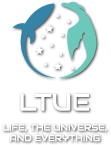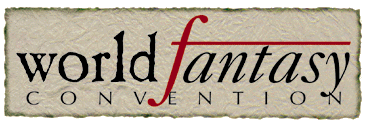A con is only as good as what you take away from it. When Words Collide 2015 had a fantastic line up of guests and panels to serve it’s 600 attendees. The 2015 guests included Diana Gabaldon (historical), Daniel Abraham (fantasy), C.J. Carmichael (romance), Faith Hunter/Gwen Hunter (urban fantasy/thriller) and Brandon Mull (young adult) as well as literary agents and small/medium press publishers.
Between the workshops and the panels, it was a great weekend to boost the little grey cells. Here are six things I found interesting:
1) On using pen names
Writing is about meeting reader expectations and as a writer you need to be transparent when you set those expectations. So if you use your real name when you write urban romance, it’s best if you use a different name when you write in a different genre like science fiction. Why? Because each name tells the reader what to expect. If they buy a book expecting to read a romance and it’s science fiction, you’ll have one angry fan and you don’t want that. However, each name you use doesn’t need a separate website. Your readers will accept that you have different lines under different names. Beware though, that if you’re writing for vastly different genres, like children’s picture books and erotica, not only are different names appropriate but a different website would be too!
2) Subtext provides depth and foreshadowing
The best foreshadowing is done through subtext. Done well, subtext makes future events more believable, creates mood and adds resonance. Subtext is implied, not said or told. It is the implicit undertone that reinforces an unspoken idea. This whisper campaign plants the seeds of underlying emotions, plots, and things to come in the subconscious mind and gives us deeper levels of hidden meanings within a story. Objects, symbols, actions and character traits are a few ways in which to create subtext.
3) Agents are human!
Whether you’ve got five minutes or two to make your pitch, you still need to start with pleasantries and not simply barrel into the pitch. Make sure you’ve done your research on the agent or publisher you’re pitching to so you can say what’s special about that agency or publishing house and why you think you’d be a good fit with them. Above all, be aware that it’s not just the book they’re assessing, but also if you’d make an adequate partner. The book industry is a team sport but always, the writing has to be great.
4) The business of being published
There are three main areas: Writer (product creation); Marketing (distribution, sales, promotion, platform); and Business (financial, legal, taxes). The key being successful is to know who you are as an individual and to understand how much time you want to spend on each of the three areas. For example, how much strength does your personality have to market? Understand your weaknesses and get help in those areas. Neglect any one and your business suffers BUT above all else, your product is the priority because without a good product, the rest won’t work.
5) Tricks for a successful mystery
This list was long, but here are a few of my favorites: Limit the sleuth’s options by giving him a weaknesses such as emotional, relationship, or physical impairment; tighten the pace with imposed deadlines; raise the stakes, threaten characters; allow characters to make mistakes; understand that the victim is the key catalyst for the story happens because of that person and he is the solution to the crime; readers want to solve the crime with the sleuth so have fun placing and revealing those secrets, clues and red herrings to make the investigation interesting.
6) Those critical first pages
Whether the first page uses the dialogue, narrative style or action, every good opening must contain: an event that will prove pivotal later but isn’t finished; characters in conflict; a writing style that sets the tone of the story; strong, active verbs and words; immediacy or the tension of knowing that something is about to happen; and the bait of a great opening line. In the first five pages, start an event and then don’t finish it – that creates a story within a story such as an internal conflict hinted at and an external conflict implied. Offer a thread of information or evidence to the reader and force the reader to deduce its relevance. Above all else, you will never go wrong by opening with conflict.
Check this con out at: http://www.whenwordscollide.org/





 Evan Braun is an author and editor who has been writing books for more than ten years. He is the author of The Watchers Chronicle, whose third volume, The Law of Radiance, was released earlier this year. In addition to specializing in both hard and soft science fiction, he is the managing editor of The Niverville Citizen. He lives in Niverville, Manitoba.
Evan Braun is an author and editor who has been writing books for more than ten years. He is the author of The Watchers Chronicle, whose third volume, The Law of Radiance, was released earlier this year. In addition to specializing in both hard and soft science fiction, he is the managing editor of The Niverville Citizen. He lives in Niverville, Manitoba.